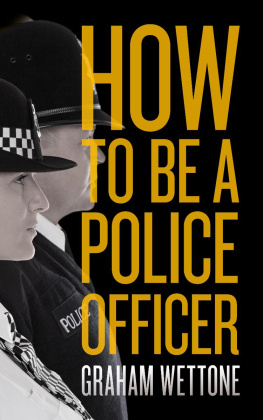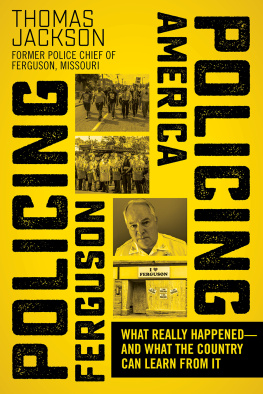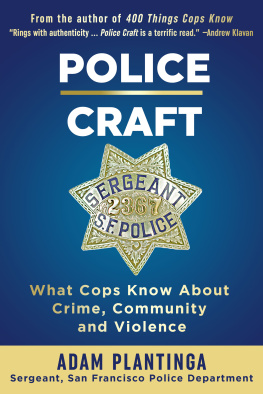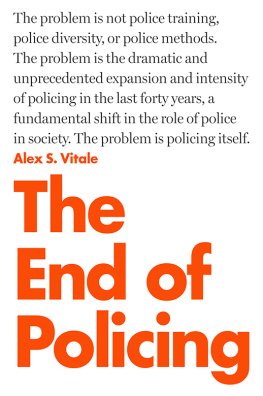Scott W. Phillips - Police Militarization: Understanding the Perspectives of Police Chiefs, Administrators, and Tactical Officers
Here you can read online Scott W. Phillips - Police Militarization: Understanding the Perspectives of Police Chiefs, Administrators, and Tactical Officers full text of the book (entire story) in english for free. Download pdf and epub, get meaning, cover and reviews about this ebook. year: 2018, publisher: Routledge, genre: Politics. Description of the work, (preface) as well as reviews are available. Best literature library LitArk.com created for fans of good reading and offers a wide selection of genres:
Romance novel
Science fiction
Adventure
Detective
Science
History
Home and family
Prose
Art
Politics
Computer
Non-fiction
Religion
Business
Children
Humor
Choose a favorite category and find really read worthwhile books. Enjoy immersion in the world of imagination, feel the emotions of the characters or learn something new for yourself, make an fascinating discovery.

- Book:Police Militarization: Understanding the Perspectives of Police Chiefs, Administrators, and Tactical Officers
- Author:
- Publisher:Routledge
- Genre:
- Year:2018
- Rating:4 / 5
- Favourites:Add to favourites
- Your mark:
Police Militarization: Understanding the Perspectives of Police Chiefs, Administrators, and Tactical Officers: summary, description and annotation
We offer to read an annotation, description, summary or preface (depends on what the author of the book "Police Militarization: Understanding the Perspectives of Police Chiefs, Administrators, and Tactical Officers" wrote himself). If you haven't found the necessary information about the book — write in the comments, we will try to find it.
The increased militarization of the police in the United States has been a topic of controversy for decades, brought to the public eye in notable events such as the Los Angeles Police Departments use of battering rams in the 1980s and the siege of the Weaver family at Ruby Ridge, Idaho, in the 1990s, among others. The issue of police militarism has been back at the forefront of criminal justice policy discussions in the wake of the militaristic police response to the protests that took place after the fatal shooting of Michael Brown by a police officer in Ferguson, Missouri, in 2014. This book examines the issue of militarization in a post-Ferguson environment from the perspective of those inside policing.
Drawing from a variety of dataincluding historical analysis of newspaper articles to examine the use of firearms in policing; original data from police respondents attending the Federal Bureau of Investigations National Academy in Quantico, Virginia; interviews with police chiefs and tactical officers regarding their direct experiences; and a sample of National Academy attendees reporting on the deployment of patrol rifles in policingthis work provides a nuanced look at police militarization that will inform future conceptual discussions and empirical research into the phenomenon. Considerations identified for police policy-makers include politics, media, leadership, and marketing. These themes are explored in detail, suggesting multiple dimensions, both theoretical and empirical, to better understand policing and policy, making this book an excellent resource for students, scholars, and professionals in law enforcement, political science, and public administration.
Scott W. Phillips: author's other books
Who wrote Police Militarization: Understanding the Perspectives of Police Chiefs, Administrators, and Tactical Officers? Find out the surname, the name of the author of the book and a list of all author's works by series.






